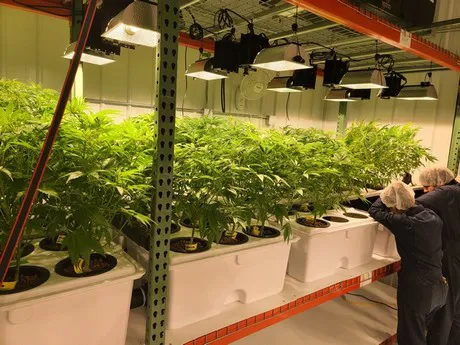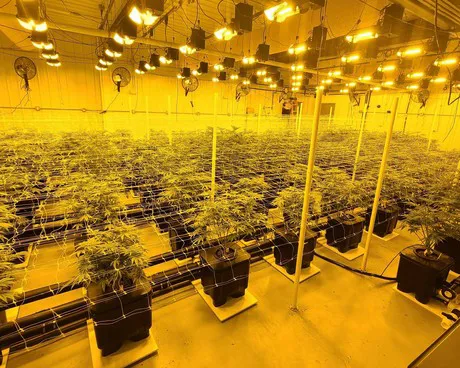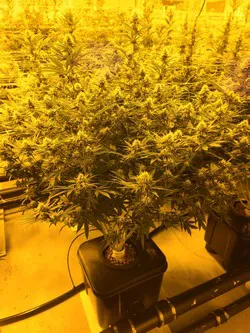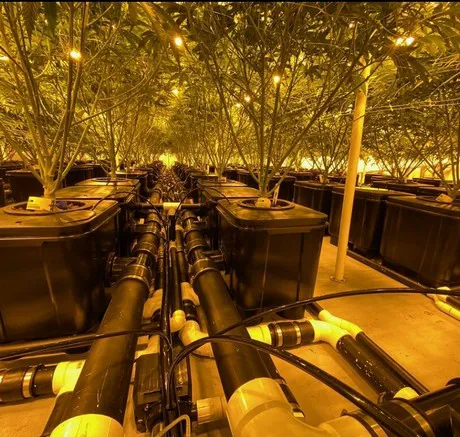The cannabis industry surely is one of the most energy-intensive businesses out there. Impressive facilities equipped with cutting-edge technology to control every slight variation in the environment requires an equally impressive operational cost. Thus, the role of efficiency in such operations is paramount: it's the way to go if a grower wants to be profitable in the competitive cannabis market. Alex Martin is the Operations Director for Lemonati Family Farms, a cannabis producer based in Michigan. He has worked for a long time as a consultant in Michigan before founding Lemonati Family Farms, therefore he was very much aware of what running a cannabis operation entails.

HVAC calculation
“There are many common mistakes that commercial cannabis growers make when they transition to a commercial scale,” he explains. “Factoring in all the odds and ends to create a perfect environment for cannabis cultivation is the most prevalent. There is a general tendency to overlook the HVAC/dehumidification calculations, especially if a grower is running a sealed room with CO2 supplementation. Especially in this situation, but also generally speaking, it is crucial to keep the air quality within the room in specific atmospheric ranges. By overlooking these calculations, you might end up with a too humid room, which ultimately leads to the development of molds and other pathogens."

A hydroponic facility
Lemonati Family Farms operates a hydroponic facility that runs a recirculating deep water culture system. “Since the inception of Lemonati, we wanted to grow the highest quality cannabis,” Alex points out. “Therefore, going for an indoor facility was a no brainer, as only in such a condition you can efficiently and thoroughly control the growing environment.”

At the same time, designing such an impressive facility comes with its set of challenges. “When it comes to running an indoor hydroponic system, you have to take into account so many things,” Alex points out. “One of the most crucial things was the HVAC calculation. To do this, you have to consider all the equipment to have a correct calculation: you have to do it not only regarding the lighting system, but also for water chillers, dehumidifiers, and for all the pumps individually. Each of our hydroponic systems has four high-powered pumps, for instance. Thus, this process required a lot more planning than a drain to waste operation would take. On top of that, we have particularly high standards for fire safety in Michigan, so we spent a considerable amount of time redesigning a more traditional RDWC system that would accommodate safe aisleways, while not sacrificing the canopy footprint."
Be realistic in terms of energy
The importance of a precise HVAC calculation comes also together with the necessity to be realistic in terms of energy required to safely run the grow. “Thinking they could save some money, some growers went for the cheapest option, purchasing one HVAC unit only, and connecting that to all the rooms in the grow,” Alex observes. “The problem with such an approach is that your grow rooms are dependent on only one HVAC unit, and if it breaks or shuts down because of a power outage, then the whole operation is in real danger. This is why we have 3 HVAC units, each connected to a room. If an emergency situation comes up and one of these three stops working, then another one can take over, thus ensuring the continuity of the cultivation. On top of that, we have also incorporated HEPA filtration within our air HVAC units, as well as using a number of standalone filters for each room. This also greatly helps us to prevent molds and pathogens.”

Despite the global pandemic, the cannabis industry has never stopped, and every grower, distributor, and retailer worked hard to keep the supply chain steady. Because of the sudden change of perspective regarding this young industry, Alex thinks that in a not so distant future, US regulations will federally acknowledge this sector, opening up a wide array of opportunities. “I think that in the next few years, the US will at the very least change their banking laws,” he says. “And once regulations get cleared, you will start to see more traditional manufacturing experiences coming from the consumer-packaged goods space. With the leadership of more traditional experts in these fields, there will be a lot more brands, more consistency; there’s going to be way more competition, driving more brand loyalty. We at Lemonati Family Farms are working towards that.”
For more information:
Lemonati Family Farms
1120 E Oakland Ave, Lansing MI 48906
lemonatimi.com
